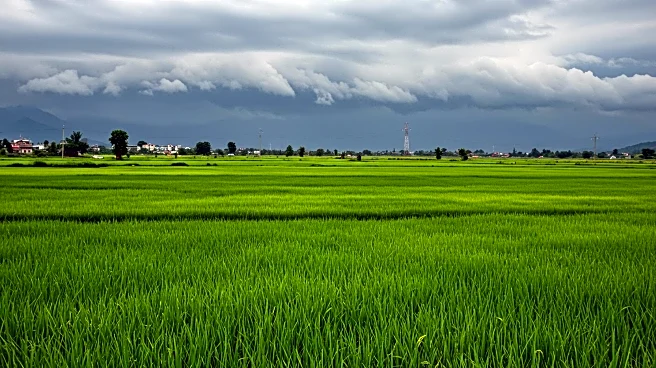What is the story about?
What's Happening?
Nepal has imported agricultural goods worth Rs. 400 billion in the last fiscal year, highlighting a significant gap between domestic production and demand. Factors such as shrinking agricultural land, youth migration, traditional farming methods, and inadequate irrigation facilities contribute to this reliance on imports. The government has declared an agricultural decade starting from 2024, yet farmers face challenges like lack of chemical fertilizers and poor infrastructure for storage and transportation. Climate change exacerbates these issues, with extreme weather events threatening agricultural yields. The Madhes region was declared a disaster-hit zone due to prolonged drought, affecting paddy planting.
Why It's Important?
The heavy reliance on agricultural imports poses a risk to Nepal's food security and economic stability. As the country imports more than it exports, foreign reserves are strained, impacting the economy supported by remittances. Addressing these challenges is crucial for Nepal to become self-reliant in agricultural goods. Modernizing agriculture with climate-smart practices and improving infrastructure can boost yields and reduce dependency on imports. Ensuring food security is vital for the nation's growth and resilience against climate change impacts.
What's Next?
Nepal must prioritize modern agricultural practices, including high-yield crop varieties and advanced irrigation techniques. The government should allocate sufficient budget and support policies to assist farmers, ensuring timely access to fertilizers. Efforts to modernize and commercialize agriculture are essential for achieving self-reliance and economic growth. Sustainable use of natural resources and conservation efforts will be key in enhancing agricultural productivity and securing food supplies.














